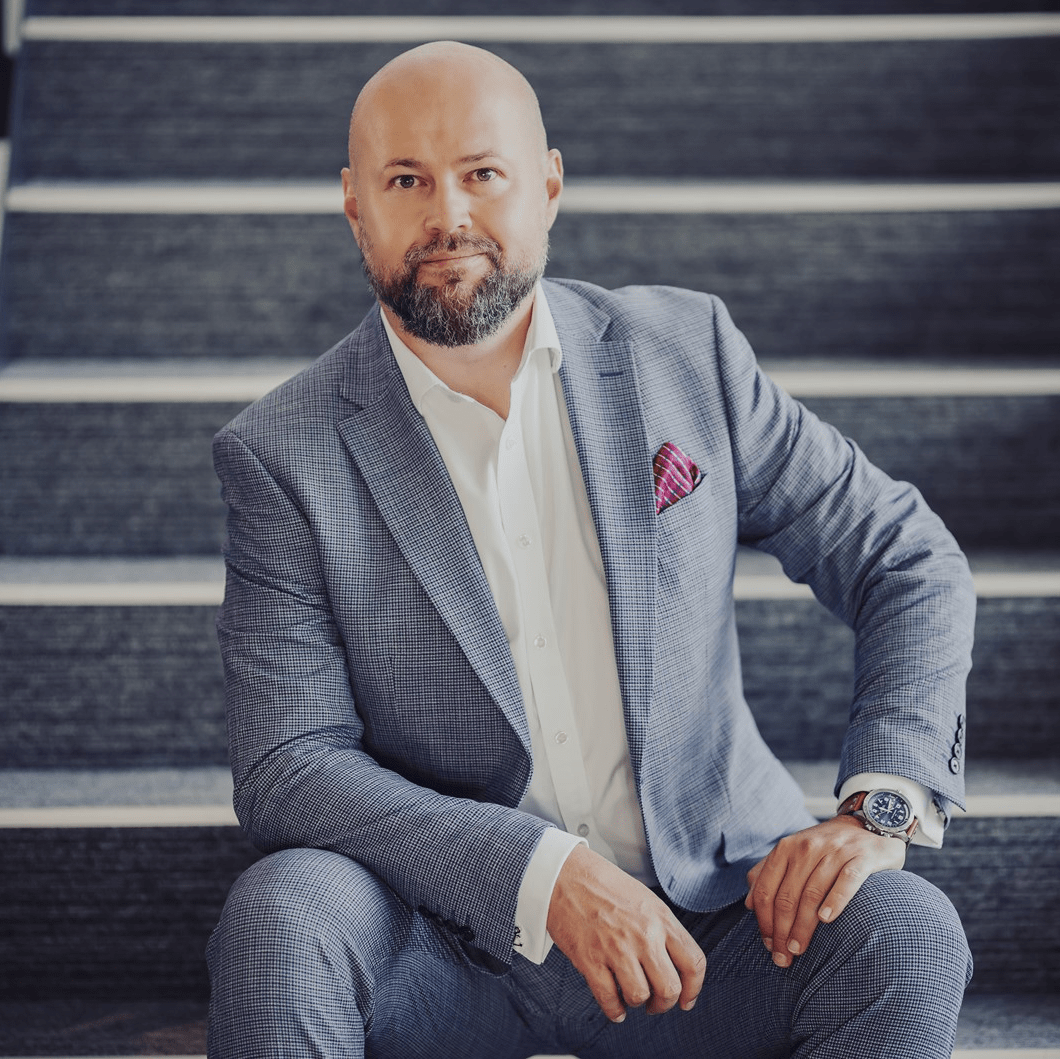Behind the mask of successful managers, it is necessary to find the real people and their true motivations.

Hello, today we will continue our conversation from the last meeting. Last time, we talked a lot about you and your work. Today, we should look at the work and its development. Shall we?
Sure.
Let’s start straight away, what’s your opinion on the current trend of remote work?
That's a good question. From our customers, I hear both positive and negative comments. For me, it clearly depends on the type of business. In short, you don’t want a garbage collector working remotely, but in many professions, it doesn’t interfere. However, it’s important not to forget that people are naturally team-oriented and social; they need to gather and talk. According to anthropological research, we developed our brains precisely because of daily interaction and cooperation. So, remote work is fine, but we should support interaction and personal relationships.
What skills are most in demand in the labor market today?
From the perspective of our clients and candidates, especially for top managerial positions, resilience (long-term resistance to changes and negative externalities), determination and passion, broad outlook, and definitely people skills and natural leadership are often at the top.
What is natural leadership? Is there such a thing as unnatural leadership?
Good question. A natural leader is a guy who gathered a group of friends in elementary school and led them to play football in the yard; they followed him because he is a natural leader. Fortunately, there are many such people in today’s companies, but there are also those who did not receive these skills naturally and had to learn leadership skills. Often, these are technical types who were appointed to managerial roles. In such cases, colleagues still appreciate their technical expertise and don’t mind leadership flaws. However, there are also people who have read smart books and behave according to them, but that doesn’t work for long. I would call them unnatural leaders.
What is your approach to diversity and inclusion when selecting candidates?
Another tough question, thank you for that. Recently, I discussed this with my colleague Zuzka. Tangibly, in many fields, there is something like a glass ceiling that prevents various groups from reaching their goals or at least doesn’t support them. But how to break it down, I honestly don’t know. Ideas of positive discrimination came from America, but even in the USA, the Supreme Court recently abolished them because, despite good intentions, it is still discrimination. In my opinion, there’s not much we can do at the level of adults and working people, here we can try to mitigate the damage. The important things happen in the minds of children and students, in families, schools, and the media... that’s where the space for future change is. The fact that someone is different shouldn’t be interpreted by children as good or bad... and in this regard, I, as a parent, have a lot of work ahead of me.
What would you recommend to companies looking for new talents?
It depends on whether they are really looking for talents. Talent is someone who doesn’t have the skills yet but has the potential. Such a person needs a lot of inner determination and effort to turn talent into skills and experience, and they also need a lot of external support in the form of inspiring colleagues and bosses. For such companies, I would recommend going to schools, talking about their projects, writing blogs, letting their inspiring leaders reach a wider audience, and being visible.
Many companies, however, are not looking for talents but for ready-made robots to do specific designated work. Such companies are increasingly struggling to fill open positions. Here, I would advise considering a business model adjustment, replacing part of the management, because the world is changing, diversity at work and the development of individual talents are gaining importance.
What impact did the COVID-19 pandemic have on your field?
The impact on recruitment was significant; many average agencies went out of business, and internal recruitment teams disbanded, bringing fresh air to the competitive environment. However, companies are hiring more cautiously and often using internal resources, so not much is happening in the end. We mainly work with regular customers; we handle about 50 projects a year, and I’m glad we can choose the well-defined ones.
Well-defined projects? Can you recognize them?
Sure, I once read about the idea of scoring the customer and their project before taking on the assignment in a smart American book. I adapted this scoring to our conditions, and it works in principle. A project that scores below 80% at the start is evaluated as problematic.
Problematic in what sense, that there are no candidates?
No, we almost always find a candidate. It’s more about managing the expectations of both sides, fostering partnership collaboration, and the determination to find a solution. The American book mentioned, for example, that you should deal with the person "who feels the pain," meaning the one who is directly affected. If you only deal with an intermediary, you never have all the information or commitment.
We’ll have another interview about customer scoring sometime.
Okay.
How do you see the future of headhunting?
I see it positively. There will be increasing automation in classic recruitment. A robot can handle a larger volume and faster than a human, and in chat, you can’t tell the difference anymore. Even the Turing test has reportedly been passed by CHAT GPT. So classic recruitment will be increasingly replaced by AI. However, headhunting is different; it’s about two hours over a beer or coffee between two experienced people talking about family, work, hobbies, expectations, and somewhere in between, the real person, the real personality, emerges. That’s the interesting and challenging part of our job. Discovering the real people and their true motivations behind the mask of successful managers.
Thank you for the interview. I wish you much success in your work!
Thank you, it was a pleasure, and I hope to see you again soon.

Pavel Plachý is the founder of Flow-r Executive Search. He began his career in business intelligence, working for both Czech and multinational companies in the Czech Republic, Slovakia, and the United Kingdom. He has also held international top management roles, leading teams in three countries with a total of more than 700 employees.
In 2008, he founded his own company focused on finding strategic candidates and, since then, he and his colleagues have been dedicated to executive search. They find top managers and strategic experts for their clients.
